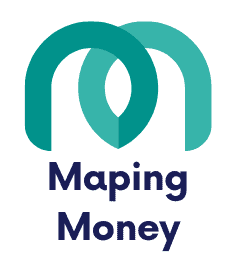5 Essential Savings Strategies for Young Adults
As a young adult, mastering your finances is essential. Start by creating a budget using the 50/30/20 rule: allocate 50% for needs, 30% for wants, and 20% for savings. Next, prioritize an emergency fund; aim for 3-6 months of living expenses in a separate, high-yield account. Distinguish between needs and wants to curb impulse purchases and enhance savings. Finally, consider using cash instead of credit to better track your spending and minimize debt. These strategies provide a strong foundation for your financial future, and there's even more insight waiting for you to explore further.
Key Takeaways
- Establish an Emergency Fund: Save 3-6 months' worth of living expenses in a separate high-yield account for financial security and peace of mind.
- Adopt the 50/30/20 Rule: Allocate 50% of your income for needs, 30% for wants, and 20% for savings to create a balanced budget.
- Track Your Spending: Regularly monitor expenses to identify overspending patterns and adjust your budget accordingly for better financial awareness.
- Practice Cash Transactions: Use cash instead of credit to avoid debt, improve budgeting skills, and limit impulsive purchases.
- Consistent Contributions: Make regular, even small, contributions to your savings to build financial resilience and support future goals.
Learn How to Budget

How can you take control of your finances and start saving more effectively? It all begins with a solid budgeting plan. Use the 50/30/20 rule to allocate 50% of your income to needs, 30% to wants, and 20% to savings. This structure not only helps you manage your budget but also guarantees you're working toward your financial goals.
To stay on track, regularly track your spending. Budgeting tools and apps can simplify this process, as studies show that 84% of regular budgeters often exceed their planned spending, frequently relying on credit card debt. By monitoring your expenses, you'll gain insight into where you can spend less.
Flexibility is key, so consider using methods like the envelope system or zero-sum budgeting. These techniques can help you manage your budget more effectively and curb overspending in discretionary categories. Finally, make budgeting a habit. Set specific times each week or month to review your financial health and adjust your budget as needed. This routine reduces financial stress and empowers you to build that all-important emergency fund, paving the way for greater freedom and financial independence.
Build an Emergency Fund

Building an emergency fund is one of the smartest financial moves you can make. Ideally, this fund should contain 3-6 months' worth of living expenses, acting as a safety net during unexpected financial challenges. To maximize your savings, consider using high-yield savings accounts. These accounts typically offer better interest rates, allowing your emergency fund to grow over time.
Make regular contributions to your emergency fund, even if they're small. Consistency is key; it greatly enhances your financial resilience and preparedness for unforeseen circumstances. You'll find that having this cushion can provide immense peace of mind, reducing financial stress and allowing you to navigate daily expenses with confidence.
It's also wise to keep your emergency fund in a separate account. This helps reduce the temptation to dip into it for non-emergencies, ensuring it remains intact for its intended purpose. By prioritizing your emergency fund, you're not just saving money; you're actively building a foundation for financial freedom. In doing so, you're preparing yourself for whatever life throws your way, giving you the confidence to chase your goals without the looming fear of financial uncertainty.
Implement the 50/30/20 Rule

When it comes to managing your finances effectively, the 50/30/20 rule is a game-changer. This straightforward budgeting process divides your income into three categories: 50% for needs, 30% for wants, and 20% for savings and debt repayment. By implementing this rule, you can streamline your financial management and develop healthy spending habits.
Consider these key benefits of the 50/30/20 rule:
- Clarity: Clearly categorize your expenses, making it easier to distinguish between needs and wants.
- Flexibility: Adjust your budget as your financial situation changes, keeping your savings goals aligned.
- Awareness: Regularly review spending patterns to identify areas for improvement in saving money.
- Security: Build a solid financial foundation, contributing to long-term financial stability and security.
Distinguish Needs From Wants

Many young adults struggle to differentiate between needs and wants, which can lead to overspending and hinder their financial goals. Understanding this distinction is key to effective budgeting. Needs are essentials like housing, food, and healthcare, while wants include non-essentials like entertainment and luxury items.
Research shows that 62% of young adults make impulse purchases on wants, which could otherwise boost savings or help pay off debt. To combat this, categorize your expenses. Aim to direct at least 50% of your income toward needs, as outlined in the 50/30/20 budgeting rule.
Regularly reassessing your personal spending habits can help identify wants that can be temporarily eliminated, allowing you to prioritize your financial goals. Before making a purchase, engage in self-reflection to reinforce the need versus want distinction. This promotes mindful spending and financial discipline.
Use Cash Over Credit

Using cash instead of credit can transform your spending habits and improve your financial health considerably. When you decide to use cash, you encourage mindful spending, which makes it easier to track your expenses and stay within your budget. Studies show that individuals who use cash spend 20-30% less than those who rely on credit cards. This is because the physical act of handing over cash feels more tangible, helping you avoid overspending.
Here are some benefits of using cash:
- Avoid accumulating debt: Cash transactions help you steer clear of credit card debt with high-interest rates.
- Enhance budgeting skills: Using cash requires careful planning and allocation of funds for your needs and wants.
- Track expenses effectively: Cash makes it easier to see how much you're spending, allowing for better financial education.
- Limit impulsive purchases: When you only have cash on hand, you can only buy what you can afford.







